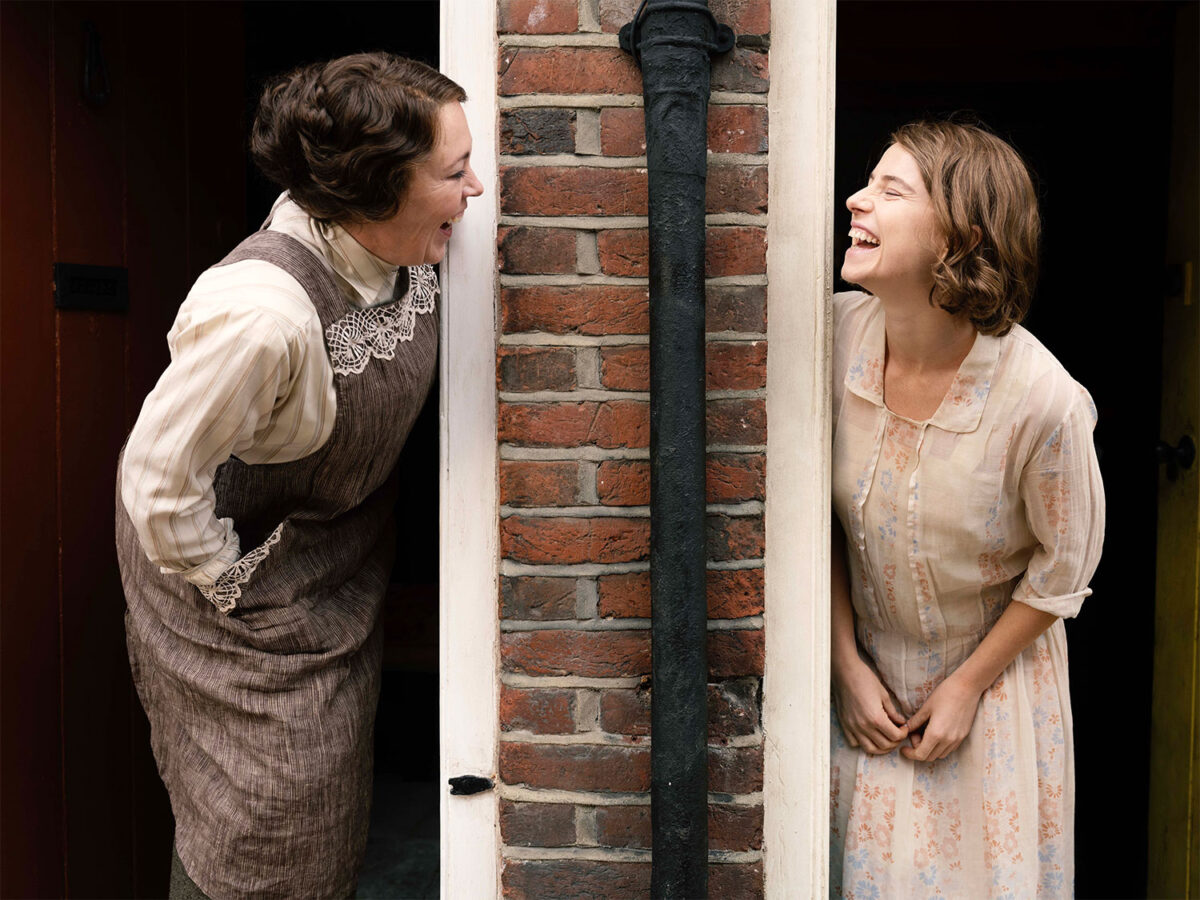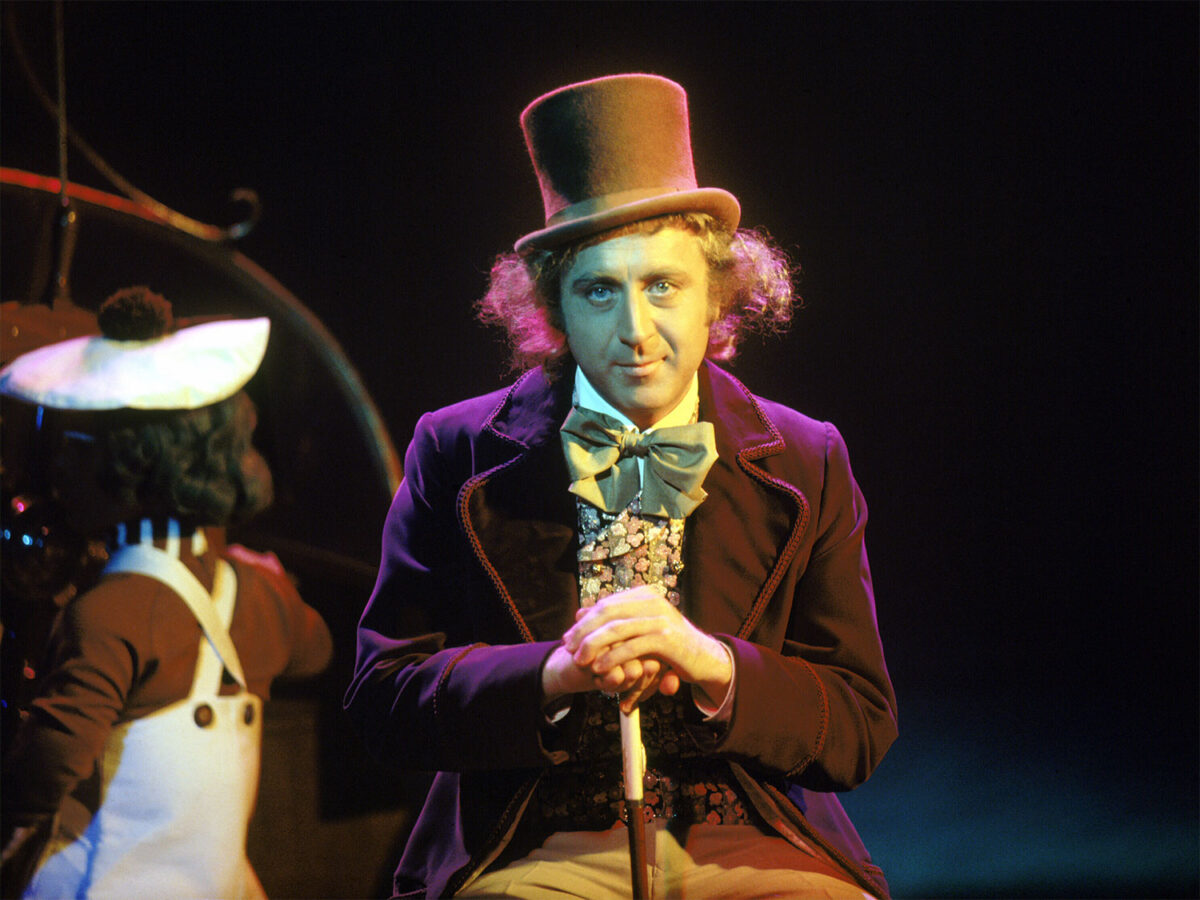“Nowhere Special” is quite the opposite. It is a wonderful film taking you on a journey that is anything but ordinary. Melancholic and hopeful in a way only the Irish can tell a story, somehow writer/director Uberto Pasolini has found that magic. Based on a true story, John is a working- class guy eking out a marginal existence as a window washer. But John is anything but marginal because he is a devoted single father who dotes on his 4-year-old Michael. His gentle patience and shining love for his son is deliberately juxtaposed against your first assumptions about him. Lower class, tatted like a map of rush hour traffic, he is the poster child for stereotypic images that are more a testament to any kind of “skin deep” analogy you could make.
Achingly real, John cares deeply and would sacrifice anything for Michael. He gets him to school, reads to him, encourages his creativity. Watch as he lovingly and delicately washes Michael’s hair, gently combing it for nits, a generally horrifying and humiliating procedure. John spends all his free time cocooning Michael in a puffy comforter of love. But there’s an undercurrent of desperation that flashes through his eyes. John receives regular visits from Social Services. For what? We’ll soon learn as we accompany John, Michael and Shona, his novice case worker, to the home of Celia and Philip, a wealthy couple who talk about how much they would love to have Michael and how much Michael would love wandering the estate. As John listens, the man rattles off all the educational advantages they could offer. When Philip slips and refers to Michael as his son, John blanches.
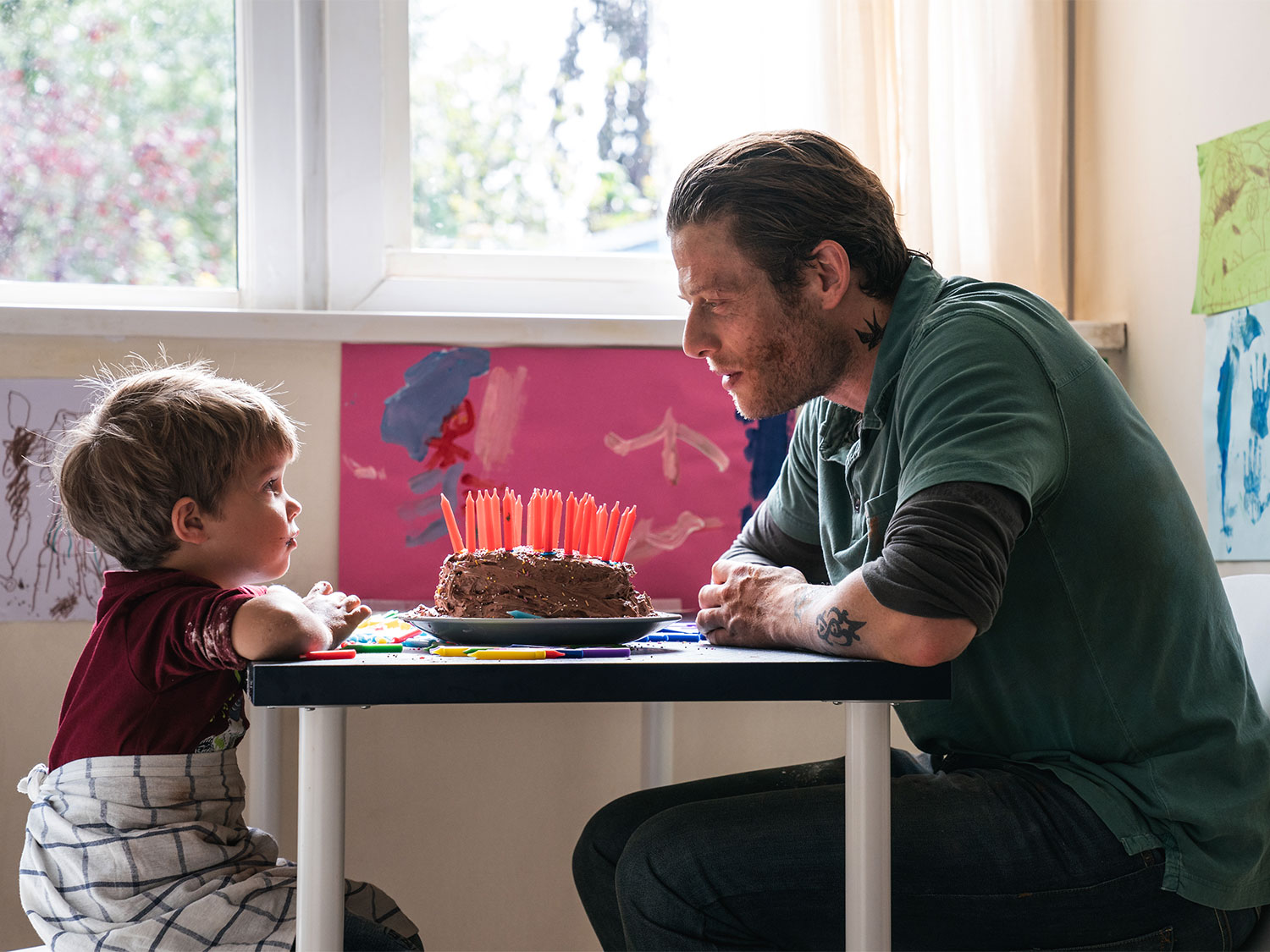
Photos courtesy of Cohen Media Group
John, as we soon learn, has a terminal case of cancer and his most important task is to find a home for Michael where he will be loved and cherished. He and Shona will be visiting the homes of couples who have been approved for such an adoption. Given more leeway than Social Services generally allows, Shona protects him as he “auditions” families. Pasolini puts the viewer in the center of these auditions as we begin to see what John sees below the surface of privilege or anarchy or desperate desire for a child. From the chaotic family with fosters and adoptees, to the older couple longing to fill the bitter hole of childlessness, to the single mom whose husband abandoned her when she expressed a need to adopt, to the others, all with as many distinct advantages as deficits. John’s moral and emotional dilemma becomes ours.
But what of Michael? His young eyes tell us that he knows something is wrong, but John hasn’t had the courage to reveal his fate or Michael’s future. The questions are too profound even for John, let alone trying to explain them to the child he still holds in his arms. The mistake, however, that parents often make about their children is believing that by shielding them from reality they are protecting them. It makes it that much more difficult to address the issues in the future as you will see.
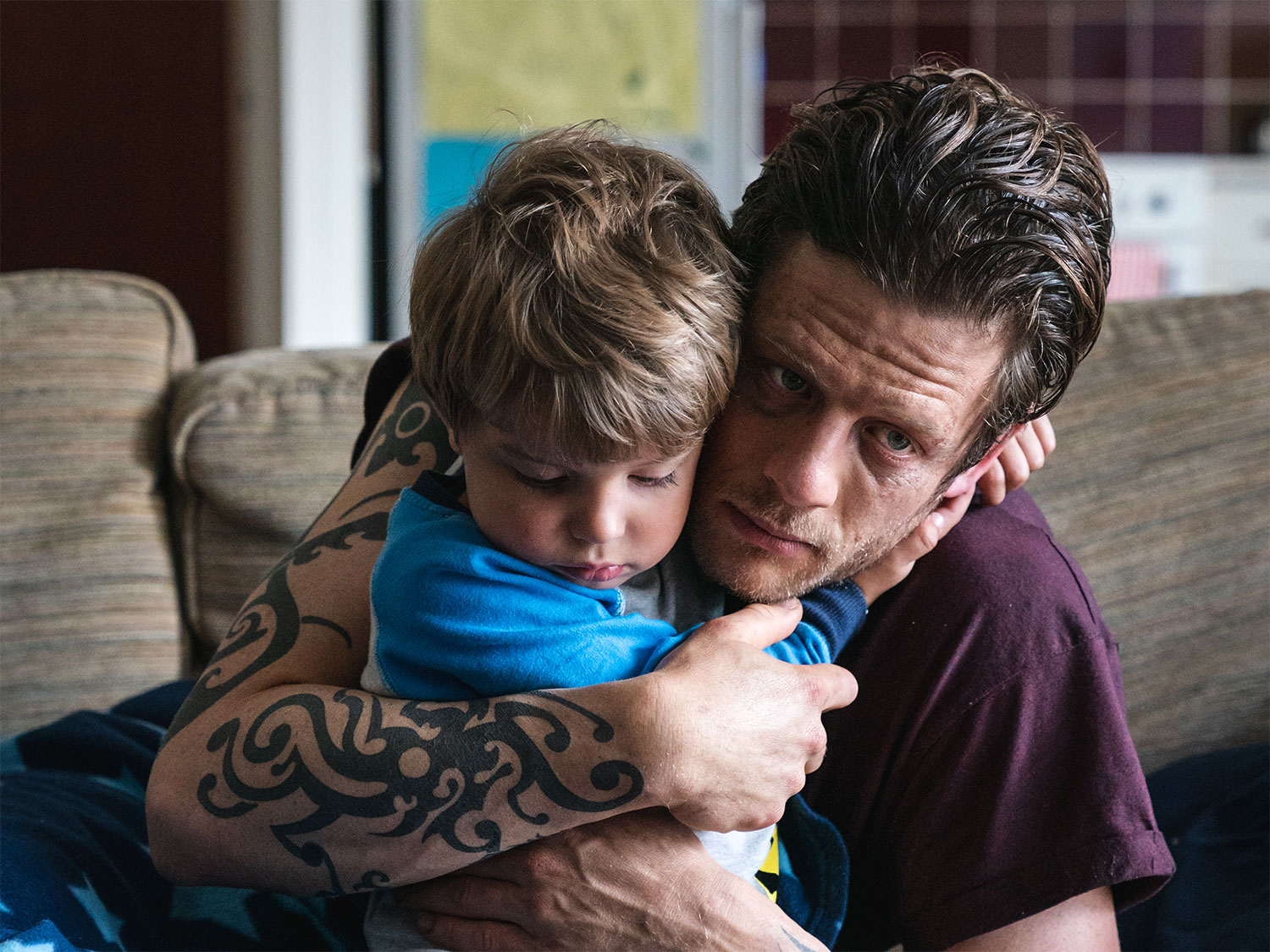
How do you explain death to a 4-year-old? Does he need a voice in his future? John, rightly or wrongly, is looking for the elusive parent who will love his child like he does. Is there such a person? The wealth he is searching for is in the depth of understanding and the hard to define unconditional love because that is what John has for Michael, self-sacrificing unconditional love.
There are many moments of humor that keep the film from becoming maudlin. It is about a journey and you are allowed to accompany them on it. It is as much about the grieving process as it is about the necessity of making memories for Michael when John is no longer there.

This is a story that has been told before but not from this perspective. I seem to remember a whole category of TV films (primarily on Lifetime in the ‘80s and ‘90s) about dying wives or dying husbands trying to find kindhearted replacements for when they are gone. The subject matter alone would certainly come under the category of tear-jerker. And that is what is so remarkable about Pasolini’s sensitive script and subtle directing. It might be difficult not to cry at the end but it will be more about the road you traveled with John and Michael rather than because of any grief you might feel. The pacing and gradual unveiling of the story and its implications allow you to acclimatize to the end that John is anticipating. It is more the love you feel for the characters and their voyage than the inevitability of what you know is coming. Pasolini has presented his story in an almost matter-of-fact way, no overt drama, no tears, just the day-to-day reality of a man who single handedly and lovingly raised Michael after his wife bolted soon after his birth. That there are no recriminations, no bitterness, no sadness is more because John realizes the value of time and holding on to the anger of injustice is a waste of his precious time with Michael. This is an achingly real story of a dying father trying to plan his boy’s future and seeing all the things he won’t be able to do with him.
The cinematography by Marius Panduru captures the wide green Irish landscape with a bright palette. The many close-ups give us an intimate view of John and Michael; the sweep of John’s squeegee over a window as he’s working adds a necessary dimension to his character.
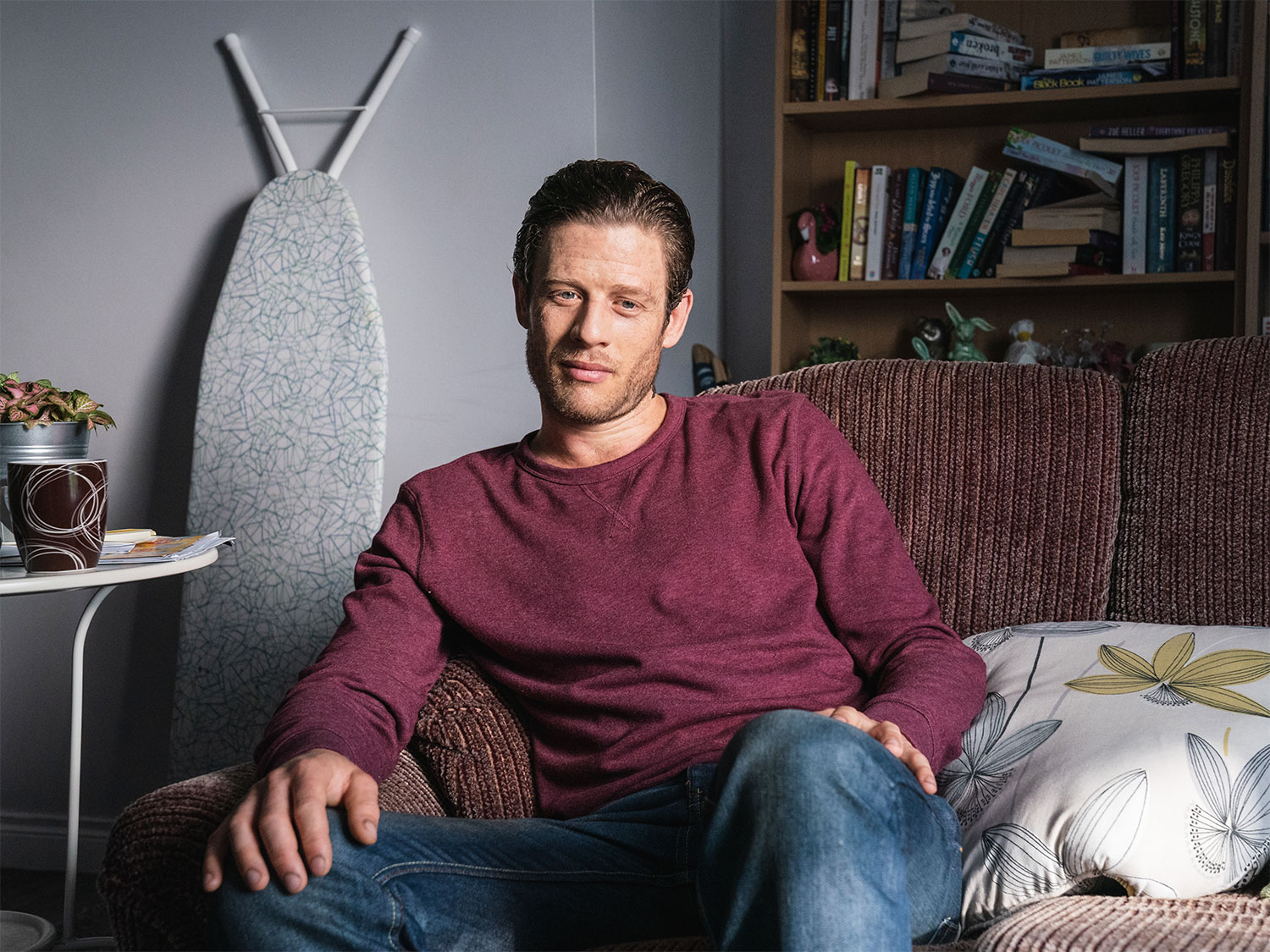
“Nowhere Special” was especially fortunate in its casting. The versatile James Norton (“Grantchester,” “Happy Valley”) plays John. Here, Norton’s characterization of John is subtle, empathetic, quiet and deep. It is an amazing performance, so natural that you live his life and suffer along with him as he tries to make the right decisions. Daniel Lamont, Michael, was an extraordinary find. He is beyond beautiful with his huge eyes and full cheeks. Drawing outside the lines with his crayons and searching for the reasons his father is dragging him into strange homes, he could be your child or mine. The rapport between father and son seems deeply real. This is a lovely film that has more to say about love than it does about dying. This perfect film will stay with you.
Now playing at the Laemmle Royal; it will stream on most platforms beginning June 11.
Neely Swanson spent most of her professional career in the television industry, almost all of it working for David E. Kelley. In her last full-time position as Executive Vice President of Development, she reviewed writer submissions and targeted content for adaptation. As she has often said, she did book reports for a living. For several years she was a freelance writer for “Written By,” the magazine of the WGA West, and was adjunct faculty at USC in the writing division of the School of Cinematic Arts. Neely has been writing film and television reviews for the “Easy Reader” for more than 10 years. Her past reviews can be read on Rotten Tomatoes where she is a tomato-approved critic.






